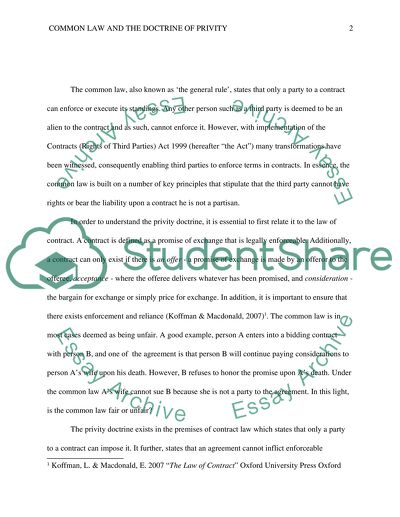Cite this document
(“Common Law and the Doctrine of Privity Essay Example | Topics and Well Written Essays - 1750 words”, n.d.)
Retrieved from https://studentshare.org/law/1469896-1
Retrieved from https://studentshare.org/law/1469896-1
(Common Law and the Doctrine of Privity Essay Example | Topics and Well Written Essays - 1750 Words)
https://studentshare.org/law/1469896-1.
https://studentshare.org/law/1469896-1.
“Common Law and the Doctrine of Privity Essay Example | Topics and Well Written Essays - 1750 Words”, n.d. https://studentshare.org/law/1469896-1.


